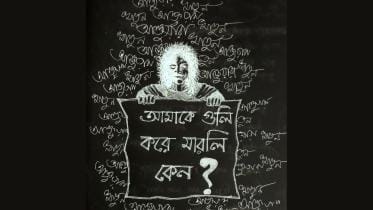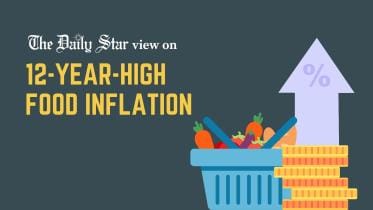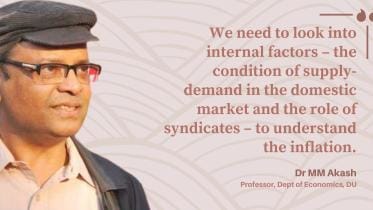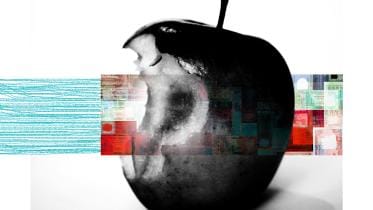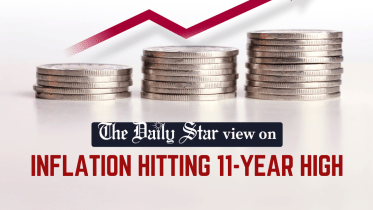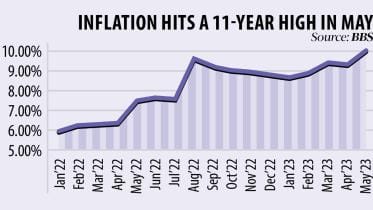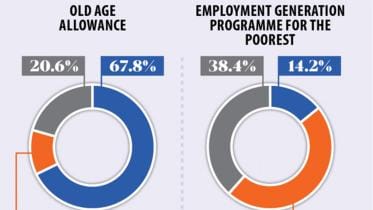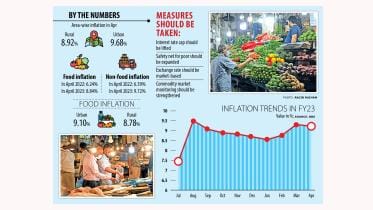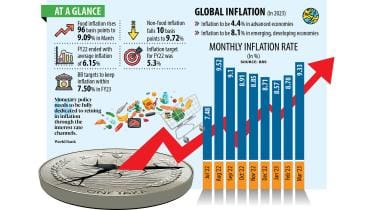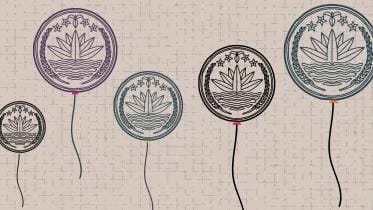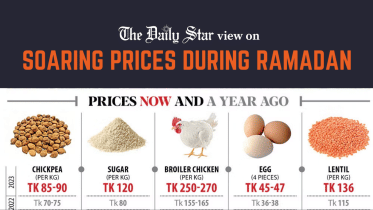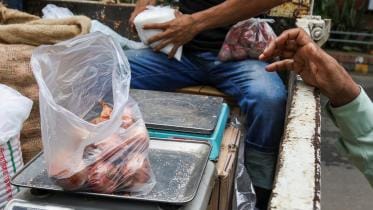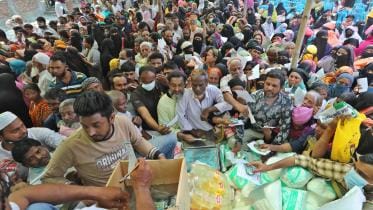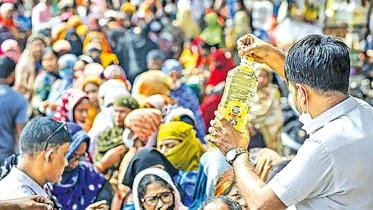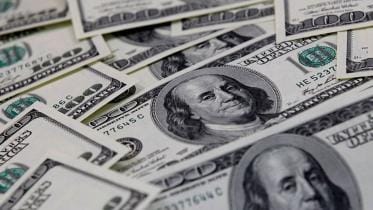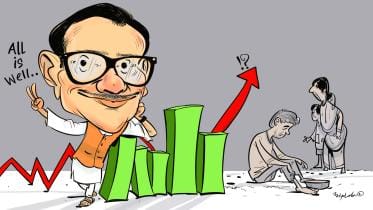inflation 2023
You can’t quell workers’ hunger by opening fire on them
Rather than assuage the workers by announcing a respectable wage, the wage board has essentially fuelled workers’ outrage and made a mockery of the wage negotiation process
9 November 2023, 10:38 AM
Higher food prices, worse living crisis
The government should have figured out how to rein in food inflation by now.
13 September 2023, 01:00 AM
'I blame misgovernance and mismanagement for high inflation'
Dr MM Akash, professor of economics at Dhaka University, explains what is driving the inflation up in Bangladesh.
19 August 2023, 02:00 AM
Is Bangladesh at a triple crossroad?
Bangladesh has always battled and progressed through crises. But what future awaits us?
18 August 2023, 02:00 AM
Stop blaming external factors for record-high inflation
Bangladesh government should own up to its mistakes
7 June 2023, 05:58 AM
Inflation hits 11-year high
If there is one indicator that epitomises the government’s mismanagement of the economy in recent times, it is inflation -- which raced to an 11-year high of 9.94 percent in May.
6 June 2023, 01:00 AM
Raging Inflation: Not much help on the way for the poor
Even though poor people are struggling to make ends meet amid runaway inflation, the government allocation for social safety net programmes may not increase much in the next fiscal year.
24 May 2023, 01:00 AM
Inflation falls but still at an elevated level
Inflation in Bangladesh fell slightly to 9.24 per cent in April, driven by a decline in food prices, although it still remains at an elevated level compared to historic trends, official figures showed yesterday.
4 May 2023, 02:00 AM
Inflation jumps to 7-month high in March
Inflation in Bangladesh jumped to a seven-month high of 9.33 per cent in March as food prices rose and the adjustment of oil, gas, and electricity prices took hold, highlighting the pains low-income households are going through.
5 April 2023, 02:00 AM
How the poor dodge the pangs of hunger
The landless casual workers in rural areas and the urban poor face a bleak prospect.
1 April 2023, 19:30 PM
Poor policy and market management have caused price hikes
Why is the government failing to manage the market as they should?
29 March 2023, 04:00 AM
Why low global prices don't reach Bangladeshi consumers
High commodity prices in the global market are often used as an excuse to justify price hikes in the domestic market, even if there is no direct correlation
26 March 2023, 17:00 PM
Let there be restraint in Ramadan market
Increase monitoring to check manipulation of food prices
24 March 2023, 00:29 AM
Navigating sky-high prices in Ramadan
Arresting high prices requires more focused and extensive actions by the government.
19 March 2023, 15:00 PM
Shrinkflation: Downsizing in the time of inflation
How do we address the silent famine that is looming large?
4 March 2023, 03:00 AM
Govt’s higher borrowing from BB stokes inflation risk
The government has kept borrowing from the Bangladesh Bank as commercial banks can’t come up with much-needed funds owing to the liquidity crunch.
15 February 2023, 02:00 AM
No chance of debt distress
Bangladesh has a low risk of external and overall debt distress despite higher external borrowing in recent terms, said the International Monetary Fund.
6 February 2023, 01:20 AM
Price hike of essentials: the poor have their back against the wall
Abdul Wahab, a security guard at an ATM booth of a private bank in the capital, works 16 hours a day.
5 February 2023, 01:30 AM
$6b more to come from dev partners
Bangladesh is expected to get about $6 billion over the next four years from development partners other than the International Monetary Fund to meet the development financing needs, particularly to address climate change challenges.
4 February 2023, 01:00 AM
‘We are doing well’
This shouldn’t have been a mere political statement; it should have been the reality. But the current government policies are not in line with that goal.
1 February 2023, 18:00 PM



